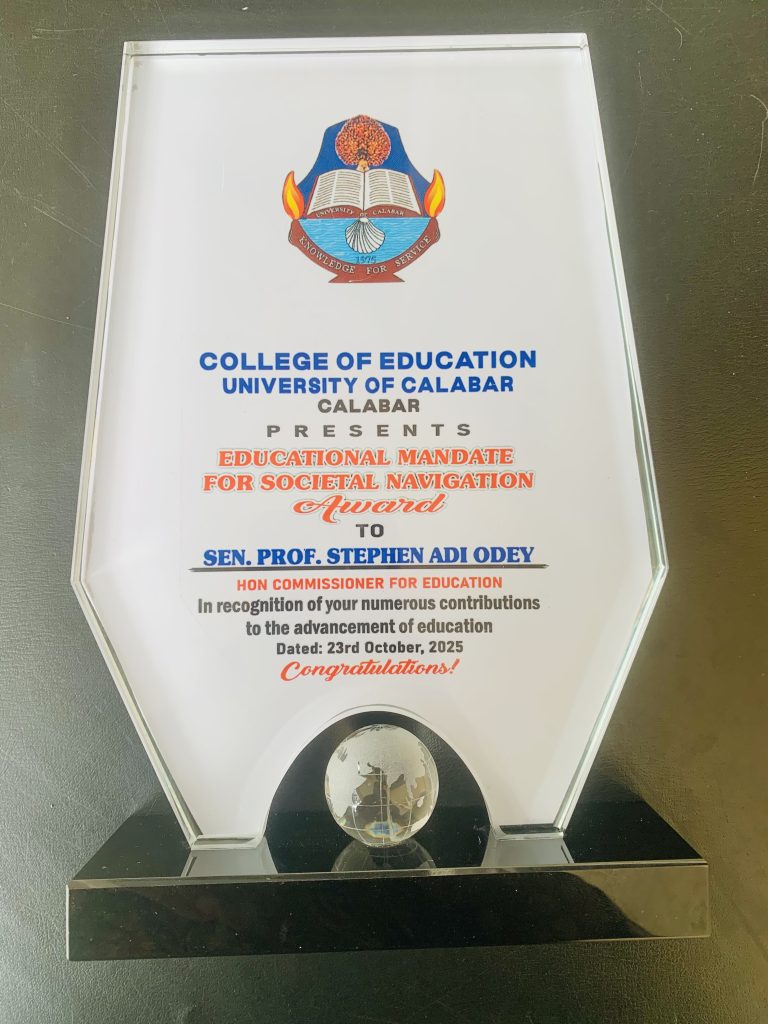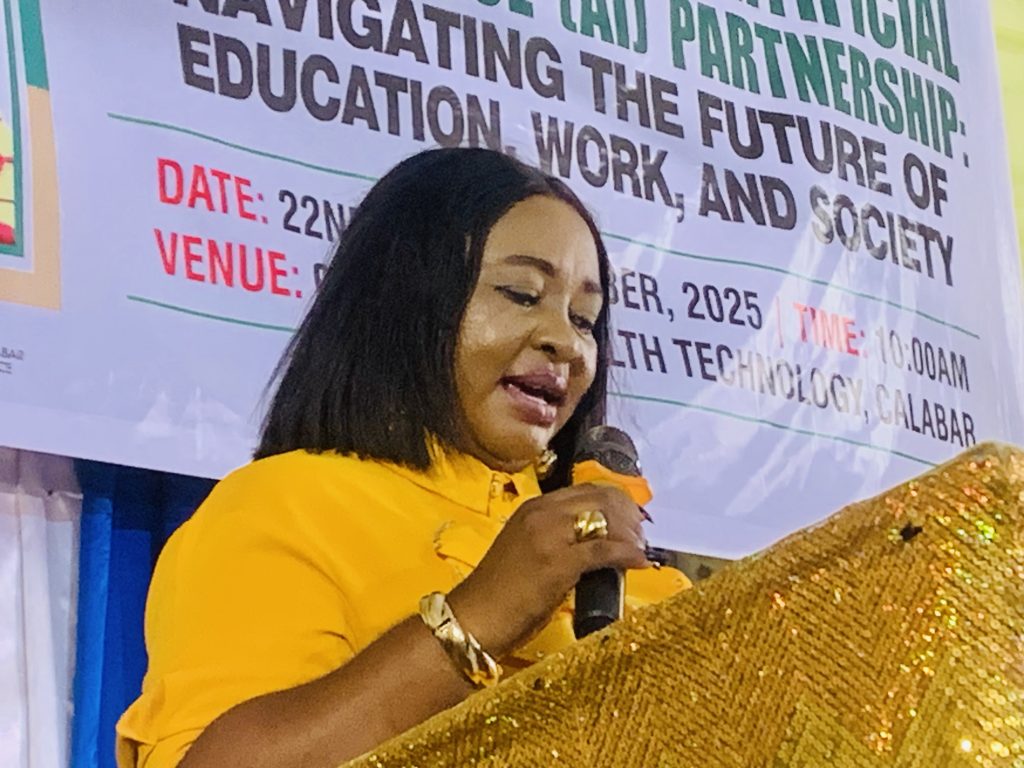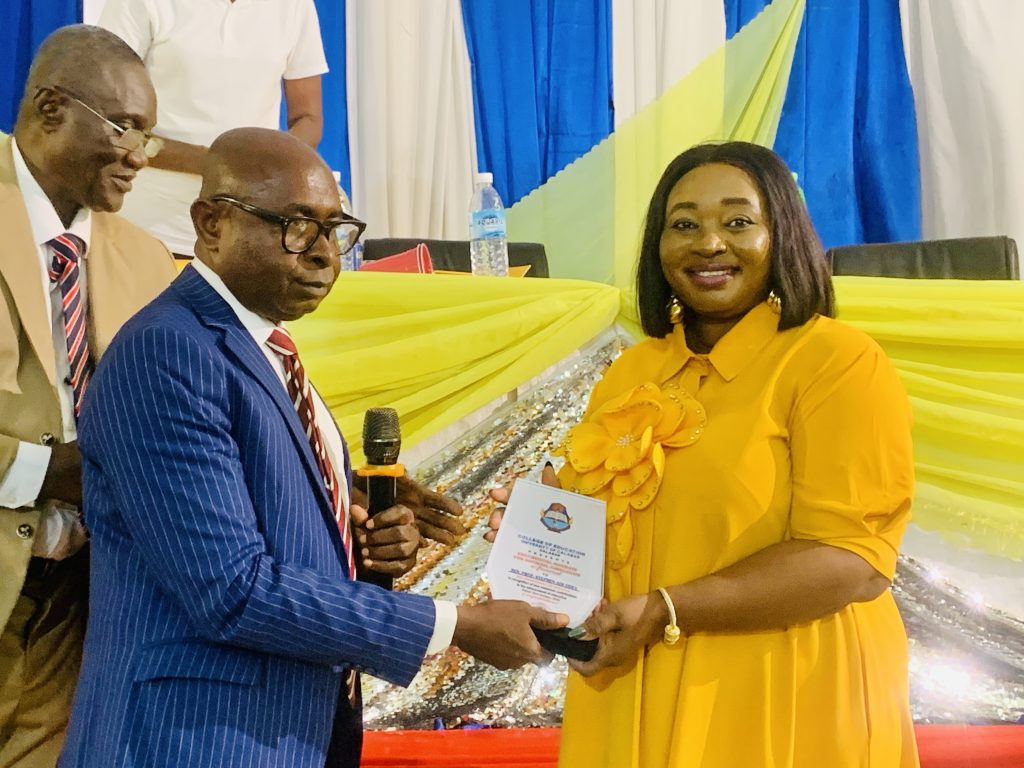BY PATRICIA OGBECHE



The Cross River State Commissioner for Education, Senator (Prof.) Stephen Odey, has emphasized the transformative potential of Artificial Intelligence (AI) in reshaping the educational landscape for enhanced teaching and learning outcomes.
He made this known during the 1st Annual Conference of the College of Education, University of Calabar, held on October 23, 2025. The Commissioner was ably represented by the Permanent Secretary, Ministry of Education, Mrs. Offiong Ani Offiong, who also delivered a presentation on his behalf.
The conference, themed “The Human and Artificial Intelligence (AI) Partnership: Navigating the Future of Education, Work, and Society,” brought together scholars, lecturers, and education stakeholders from across the country to explore the opportunities and challenges AI presents in modern education and the workplace.
In his paper presentation, Senator (Prof.) Odey highlighted that AI is revolutionizing education through innovations that enhance learning efficiency, personalize instruction, and streamline administrative operations. He noted that AI-driven technologies are transforming traditional teaching methods by introducing adaptive learning systems, intelligent tutoring, automated assessments, and improved institutional management.
According to him, some of the widely used AI applications in education include:
• Intelligent Tutoring Systems (ITS): Providing real-time feedback and personalized guidance to learners.
• Adaptive Learning Platforms: Adjusting lessons to meet individual students’ needs and learning styles.
• Natural Language Processing (NLP): Assisting students in language learning and writing improvement.
• Chatbots and Virtual Assistants: Supporting students with coursework and inquiries.
• Virtual and Augmented Reality (VR/AR): Creating immersive learning experiences.
• Learning Analytics: Tracking students’ progress and predicting outcomes to improve teaching.
• Automatic Grading Systems: Offering accurate, timely feedback and freeing teachers for closer supervision.
• Personalized Learning Paths and Early Intervention Systems: Supporting students who may need additional help.
He stressed that integrating these technologies will enhance student performance, increase institutional efficiency, and foster a more interactive and responsive learning environment.
The presentation also examined the human-AI partnership in education, emphasizing key human capabilities such as reasoning, learning, creativity, perception, and emotional intelligence, which complement AI’s computational power.
In recognition of his numerous contributions to the advancement of education in Cross River State, the University of Calabar presented an Award of Recognition to Senator (Prof.) Stephen Odey, which was received on his behalf by Mrs. Offiong Ani Offiong.
Notable dignitaries in attendance included the Vice Chancellor of the University of Calabar, Prof. Florence Banku Obi, Prof. Imo Obot, Prof. Idongesit E. Eteng, and several other professors, scholars, and education stakeholders.
The conference concluded with a call for greater collaboration between academia, government, and technology innovators to harness AI’s potential for sustainable educational development.


